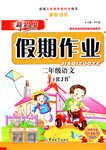题目内容
【题目】Some years ago, writing in my diary used to be a usual activity. I would return from school and spend the expected half hour recording the day’s event, feelings, and impressions in my little blue diary. I did not really need to express my emotions by way of words, but I gained a certain satisfaction from seeing my experiences forever recorded on paper. After all, isn’t accumulating memories a way of preserving the past?
When I was thirteen years old, I went on a long journey on foot in a great valley, well-equipped with pens, a diary, and a camera. During the trip, I was busy recording every incident, name and place I came across. I felt proud to be spending my time productively, dutifully preserving for future generations a detailed description of my travels. On my last night there, I wandered out of my tent, diary in hand. The sky was clear and lit by the glare of the moon, and the walls of the valley looked threatening behind their screen of shadows. I automatically took out my pen….
At that point, I understood that nothing I wrote could ever match or replace the few seconds I allowed myself to experience the dramatic beauty of the valley. All I remembered of the previous few days were the dull characterizations I had set down in my diary.
Now, I only write in my diary when I need to write down a special thought or feeling. I still love to record ideas and quotations that strike me in books, or observations that are particularly meaningful. I take pictures, but not very often—only of objects I find really beautiful. I’m no longer blindly satisfied with having something to remember when I grow old. I realize that life will simply pass me by if I stay behind the camera, busy preserving the present so as to live it in the future.
I don’t want to wake up one day and have nothing but a pile of pictures and notes. Maybe I won’t have as many exact representations of people and places; maybe I’ll forget certain facts, but at least the experiences will always remain inside me. I don’t live to make memories—I just live, and the memories form. themselves.
【1】Beforetheageofthirteen,theauthorregardedkeepingadiaryasawayof________________.
A. observingherschoolroutine
B. expressinghersatisfaction
C. impressingherclassmates
D. preservingherhistory
【2】Whatcausedachangeintheauthor’sunderstandingofkeepingadiary?
A. Adullnightonthejourney.
B. Thebeautyofthegreatvalley.
C. Astrikingquotationfromabook.
D. Herconcernsforfuturegenerations.
【3】Theauthorcomestorealizethattoliveameaningfullifeis_________________.
A. toexperienceit B. tolivethepresentinthefuture
C. tomakememories D. togiveaccuraterepresentationsofit
【答案】
【1】D
【2】B
【3】A
【解析】这是一篇富有生活哲理的记叙文。作者小时候喜欢写日记,每天忙着把“现在”记录在本子上。但她13岁时的一次经历使她意识到,我们应该学会享受而不是记录“现在”,“活着不是为了记忆”。
【1】细节理解题。由文章第一段的最后一句话“After all, isn't accumulating memories a way of preserving the past?”可知,我认为通过看过去经历的记录是保存过去的一种方式,故选D项。
【2】细节理解题。由第三段的第一句话“At that point, I understood that nothing I wrote could ever match or replace the few seconds I allowed myself to experience the dramatic beauty of the valley.”可知,山谷的美让我意识到没有什么能比得上让自己去体验美。故选B项。
【3】细节理解题。由最后一段的最后一句“I don't live to make memories...I just live,and the memories form themselves”可知A项正确,C项不正确;由第四段最后一句“I realize that life will simply pass me by if I stay behind the camera,busy preserving the present so as to live it in the future.”可知B项错误。由最后一段第二句话“Maybe I won't have as many exact representations of people and places;maybe I'll forget certain facts,but at least the experiences will always remain inside me.”可知D项错误。最后一段作者说,“也许我会忘了一些事实,但至少,这些经历将一直在我的脑海里”。这就是主人公对生活的感悟:把握现在,感受今天;生活,重在感受而不是为了回忆而记忆。答案 为A。

 学练快车道快乐假期寒假作业系列答案
学练快车道快乐假期寒假作业系列答案 新思维寒假作业系列答案
新思维寒假作业系列答案